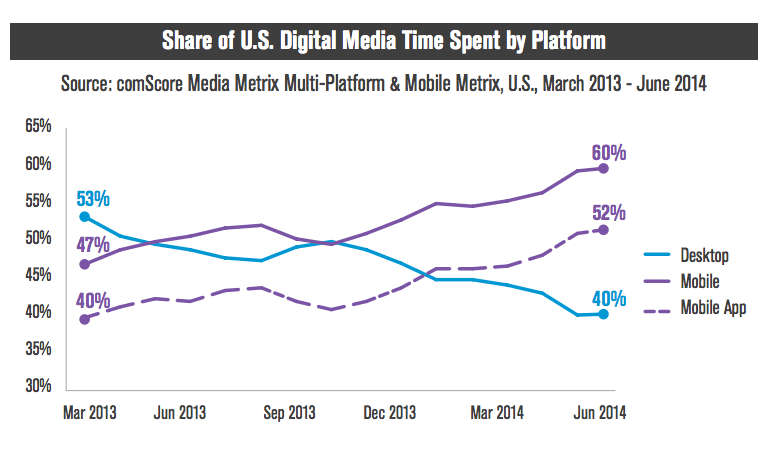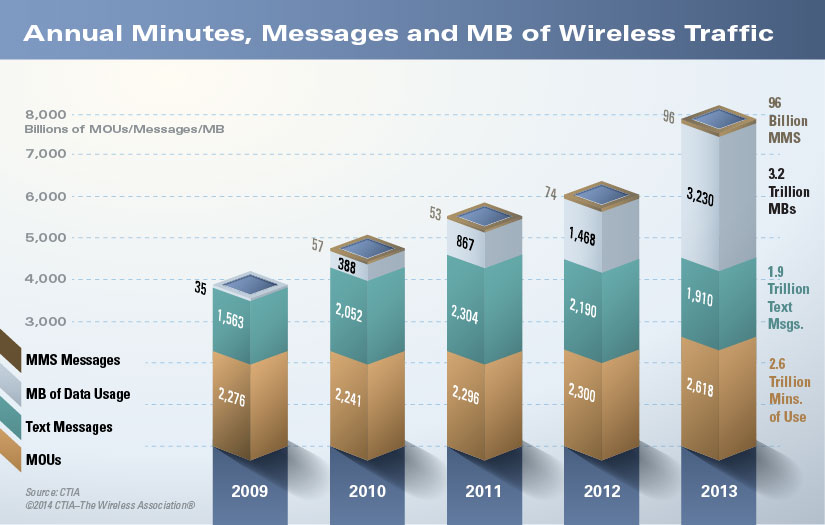
The head of the Federal Communications Commission confirmed reports Wednesday that he’s seeking to regulate Internet service like a utility.
That’s a big deal on its own, as it would give the agency new authority to stop Internet Service Providers like Comcast or Time Warner Cable from blocking or slowing down Internet content they don’t like. The move would thus protect “net neutrality,” or the idea that all Internet content should be treated as equal in terms of speed.
But buried within FCC Chairman Tom Wheeler’s Wired op-ed is a crucial nugget: He wants this change to apply not just to the Internet, but to mobile data services as well.
That would be a massive change for wireless carriers like AT&T and Verizon, which have never been subject to net neutrality rules. But if Wheeler’s broadband reform plan is to be at all meaningful, it must apply to mobile Internet services as well.
Why? Just look at this August 2014 chart from Internet analytics firm comScore, which shows how we’re spending most of our screen time:

It’s no contest: Time spent on mobile devices is handily trumping time on desktop. There is a caveat here: Just because we’re using a mobile device doesn’t necessarily mean we’re using mobile data; we could be connected to a Wi-Fi network. But according to wireless industry trade group CTIA, U.S. mobile data usage has skyrocketed since 2009, going from 35 billion megabytes in 2009 to 3.2 trillion by 2013:

That’s why it’s so important for Wheeler that his broadband reforms apply to mobile: If they didn’t, they wouldn’t affect a major chunk of today’s Internet use.
More Must-Reads from TIME
- Cybersecurity Experts Are Sounding the Alarm on DOGE
- Meet the 2025 Women of the Year
- The Harsh Truth About Disability Inclusion
- Why Do More Young Adults Have Cancer?
- Colman Domingo Leads With Radical Love
- How to Get Better at Doing Things Alone
- Michelle Zauner Stares Down the Darkness
Contact us at letters@time.com